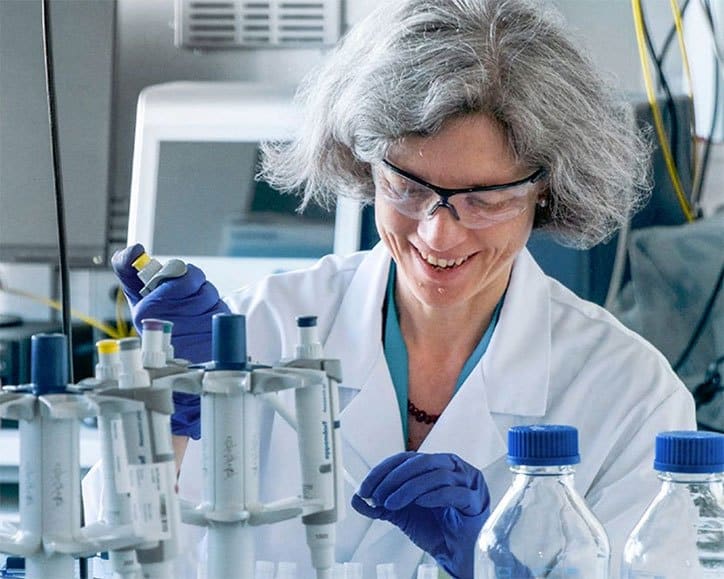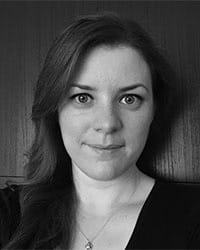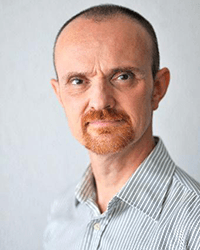Image: Boehringer Ingelheim
From submitting a job application to starting your first day at work
How long do you think it takes to go from submitting a job application to walking into a plant and starting your first day at work in a pharmaceutical or medical device company?
What’s your best guess? A week? A month? …?
To be clear, this will always vary between companies and depend on the type of job you are applying for.
But typically the time is 3 to 6 months.
Of course, some people do get hired more quickly but it’s not so common.
We generally tell our students that they should expect a successful application to take between three and six months.
The two-part reason for this lengthy process (and the two specific things our students are generally surprised by in the pharma job application process):
- The number of stages within the process
- The time it can take to hear back after each stage
So let’s now take a look at a breakdown of the hiring process for a manufacturing role within a pharma company and see how that 3 to 6-month figure isn’t actually all that surprising.
BTW, if you are already working in the industry and want to upskill for a better job or a promotion, check out our Pharmaceutical Courses.
The Stages of a Pharma Job Application Process
Pharma is an industry dominated by big multinational companies. As a result, there are typically several stages to the hiring process.
Keeping in mind that the specific process can look different in different companies. A typical hiring process for an entry-level manufacturing role in a pharma company can consist of:
- Submission of a CV or completion of an online application
- Psychometric testing
- First round interview
- Second round interview
- Medical
- Job offer
- Begin job orientation
Before we begin, I asked two experts, Germana Alencar from Morgan McKinley and from Aidan Crowley from Barden “What part of the pharma job application process tends to take the longest and why?”
Germana Alencar, Morgan McKinley
One of the factors that can significantly impact time to hire is slow interview timelines. When candidates are required to meet with numerous internal stakeholders individually, the process can be lengthened by weeks. A more effective approach is to include multiple interviewers in the initial (first and second) interview rounds to condense the evaluation period.
It is important to note that holiday periods (between June and August and December to January) can also impact time to hire as decision makers often take annual leave on these periods.”
Aidan Crowley, Barden
In my experience, the interview stage is often the longest part of the pharma job application process. This phase typically involves multiple rounds (2-5) of interviews ranging from initial phone or video screenings to panel and onsite interviews.
Scheduling:
Interviews, depending on the position and company, can stretch across several weeks, particularly when multiple decision makers are involved. Coordinating and finding the availability of multiple stakeholders and that of the interviewee can be very difficult to align. It’s not uncommon for this process to take anywhere from 2 to 4 weeks, sometimes longer depending on the time of year. (Summertime is notoriously slow due to people being on annual leave.)Feedback:
Getting feedback from a manager or multiple hiring managers can result in an inevitable delay. This delay in feedback can negatively impact a person’s interest level in that opportunity. Whereas prompt feedback will keep a person’s engagement in that process.Setting and Meeting Expectations:
The process should be clearly defined in terms of the number of interviews and the format of these interview.In some cases, particularly for niche or business-critical roles, I’ve seen certain clients act with impressive efficiency moving from CV review to interview, and then to offer within just 5 business days. Do take note though that this is not a common occurrence.
While the efficiency of the process is key, it has never been more important how the person feels throughout the interview.
Interviews should not be a process, they should be an experience.
The Timeline of the Hiring Process
A typical hiring process might look something like this:
(Please note: This is an approximation of the hiring process. There could be significant differences in the hiring steps and wait times depending on the company.)
| You take the following steps to apply for a job | What's happening while you wait! |
| You submit an application for an advertised position. | |
| You wait 2-6 weeks. | First you generally have to wait until the application deadline has passed. Then HR reviews all applications and shortlists candidates for the next step. HR contacts these candidates and arranges a psychometric test - there may be dozens of candidates moved through this stage of the process. |
| You take a Psychometric test. | |
| You wait 2-4 weeks. | HR will have already predetermined the success metrics for the psychometric tests making it a quick process to identify who’s successful. What can take time here is coordinating staff and candidate availability for first-round interviews. |
| You do your first round interview. | |
| You wait 2-4 weeks. | HR will review the candidates' performance and consider who to take to the next round of interviews. This decision may involve multiple people within the company. Then HR will assess staff and candidate availability for the second round of interviews and make arrangements. |
| You do your second round interview. | |
| You wait 1-4 weeks. | Again, there will be consideration and review of candidate performance. It’s even more likely that senior members of staff have to review and “sign off” on the choice of candidates at this point. HR checks your references/proof of education and arranges a medical examination. |
| You take a medical exam. | |
| You wait 1-3 weeks | The company reviews the results of the medical and makes the final decision on who will be offered a job. |
| You receive notice of a job offer | |
| You wait 1-2 weeks. | It can easily take a week or two for the contract to be finalised, reviewed and sent. |
| You and HR finally complete all paperwork on the job offer. | |
| You wait 1-3 weeks. | Arrangements are made for your first day on site (which will typically involve job orientation, onboarding and depending on the role, onsite training). |
| You start your first day at work. | |
| Total Wait time = 10-26 weeks |
Even with all these stages complete, you’ll never just walk onto the factory floor on day one. You should always expect an extensive onboarding process and training.
This may seem like a long process, but the different steps are assessing candidates in different ways. It is hoped that by using these multiple different ways, companies are ultimately finding the right candidates for their vacancies in this unique and highly regulated industry. It’s also worth noting as well that all candidates – regardless of their experience – will be going through the same process. There’s no skipping ahead!
Submission of a CV or completion of an online application
This shouldn’t be a surprise. To get the whole process started, you’ll need to submit a CV or complete an online application on the company’s website.
Try to avoid “applying” via LinkedIn or any other site where your details/CV are saved and then just sent to each employer. While this may feel like timesaving, you’re going to miss a crucial part of the CV writing process, tailoring your application.
For a full run-down of successful CV writing, check out our Ultimate Guide to CV writing series.
Psychometric testing
Psychometric testing usually happens early in the application process and is essentially used as a screening tool.
Using psychometric testing allows a company to sort through a large number of applications and find the candidates that best match a predetermined set of criteria.
Tests can assess things such as a candidate’s numerical skills, written communication skills, problem-solving skills, or even manual dexterity (this is commonly used for medical device assembly roles).
Check out this article for several tips on psychometric testing.
First-round interview
If there are still lots of applicants then first-round interviews can also be used as a screening tool to filter and find the best candidates.
In such a case, they may be conducted as telephone or video interviews and you’d typically expect a focus on competency-based questions.
Some companies might jump straight to in-person interviews at this point, and you’d expect to speak to the person who’d be your line manager or someone from HR.
This section of our interviewing post will give you an idea of the types of questions to expect.
Second round interview
If your first round interview was a telephone or video interview, your second round will likely be in-person with your potential line manager or a representative from HR.
If your first round interview was in-person, a second round interview will typically involve you meeting with someone more senior, or from a different department. For example, if the first round was with HR, the second round might be with your potential line manager; or if your first round was with your potential line manager, the second round might be with their boss.
Medical
Manufacturing roles within pharma and medical device companies generally require potential employees to complete a medical. Due to the strict rules and regulations of the industry, it’s essential that staff meet some basic medical requirements.
Any medical stipulations for the role will usually be outlined earlier in the process to allow candidates who don’t meet them to withdraw their application.
Stipulations might include things such as unsuitable for candidates with colour blindness or candidates should be medically able to lift/carry up to a certain weight.
Job offer
You might receive a job offer via phone call, but this will typically be followed up in writing.
Job orientation
It should be noted that this timeline assumes that all staff (managers, HR, etc) are freely available and not on holiday or out sick during this process. With that in mind, it’s no surprise that the hiring process can easily push beyond a three month timeline, and closer to six months.
We also understand that this timeline can be especially frustrating if you are coming from the service or construction sectors where you can often get hired after just one short interview, and sometimes even start working on the same day. But it’s just the reality of job hunting in.
What the Multiple Stages & Lengthy Timeline Mean in Practice
This three to six-month timeline is why we enthusiastically encourage all our students to make multiple applications every single week.
Consider you only make one application… You might get to the second round of interviewing and then be unsuccessful. By that point, two to four months could easily have passed and you have to start all over again with the next application. It’s simply a waste of time to “see how this one goes first”, no matter how confident you feel about it.
Having as many active applications as possible is the smart and time efficient way to job hunt. And when the worst case scenario is that you’ll have multiple job offers to consider, there’s really no down side.
If you’re feeling confused about your pharma job hunt, our Advanced Career Coaching module will walk you through the process step by step, helping you figure out where to apply and when.
And if you’re changing industry into pharma, that job hunting module is included in our Conversion Course into Pharma, giving you the technical knowledge you need as well as the job hunting support to get yourself in front of employers.
Conclusion
Getting a job in a pharmaceutical manufacturing company can be a lengthy and time-consuming process. There will be several stages and you might be surprised by how long you’re left waiting after each one. But when you’re successful, your patience will be rewarded with a well-paid, secure and rewarding job with excellent career prospects.
Interested in a Career in Pharma?
No industry experience, science or engineering qualifications?
You’ll need to start with our Conversion Course into Pharmaceutical Manufacturing
Already working in the industry and want to upskill for a better job or a promotion?
View all 13 Pharmaceutical Courses
About the Author
Claire Wilson
Content Marketing and Career Coaching
Claire runs GetReskilled’s Advanced Career Coaching Programme – our specially devised job hunting course that helps our trainees take that final step into employment by leading them through the job hunting process. She is extremely enthusiastic about helping people reach their final goal of employment in their new career path.
Claire has a BSc (Hons) in Medical Biology from Edinburgh University and spent 7 years working in the pharmaceutical and medical device industries.
Donagh Fitzgerald
Head of Marketing & Product Development
Mechanical/Production Engineer
Donagh looks after the marketing and product development including the training and pedagogical elements of our programs and makes sure that all GetReskilled’s users can have a great online learning experience. Donagh has lived and worked in many countries including Ireland, America, the UK, Singapore, Hong Kong and Japan. Donagh has also served as the Program Manager for the Farmleigh Fellowship based out of Singapore.
Donagh holds Degrees in Production Engineering and Mechanical Engineering from South East Technological University, Ireland.



Post Your Comments Below